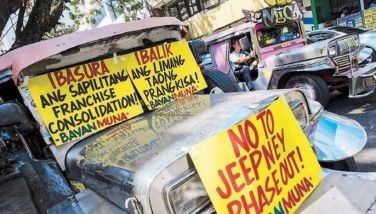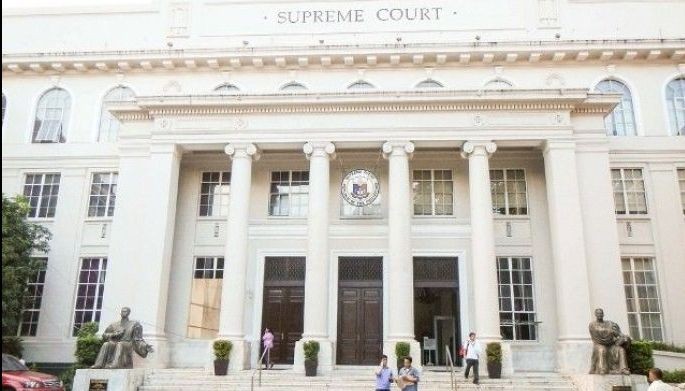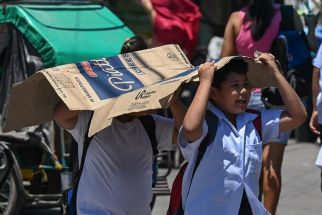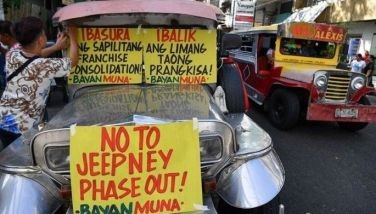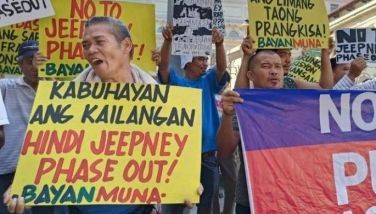UN asked to approve indigenous rights declaration
May 28, 2006 | 12:00am
UNITED NATIONS (AP) — Indigenous groups from around the world called for UN approval of a declaration on indigenous rights despite opposition from the United States, Australia and New Zealand.
At the end of a two-week meeting, 1,200 native leaders representing more than 370 million indigenous people in 70 countries on Friday approved a final report urging the General Assembly at its next session starting in September to adopt the draft declaration.
The declaration, the culmination of more than 20 years of work, states that indigenous peoples have the right to their own identity, culture and language, and to self-determination. It says governments should respect their rights to traditional lands and resources, and it states that native peoples have the right to decide on any development project in their community.
In a joint statement, the US, Australia and New Zealand called the proposed text "fundamentally flawed" and said any attempt to seek UN endorsement "would be disingenuous and irresponsible" and would "potentially undermine the cause of advancing human rights internationally."
The three countries protested that self-determination could threaten "the political unity, territorial integrity and indeed the security of existing UN member states." They called the provisions on lands and resources "particularly unworkable and unacceptable" because they appear to require recognition of indigenous rights to lands now lawfully owned by other citizens.
The proposed declaration was negotiated for 11 years by a working group in the UN Human Rights Commission which reached an agreement in February, just before the discredited body was about to become defunct. The indigenous leaders called on the new Human Rights Council, which replaced it, to endorse the declaration and send it to the General Assembly.
Victoria Tauli-Corpuz, chairperson of the UN Permanent Forum on Indigenous Issues, said the declaration’s adoption is supported by the European Union, a group of Scandinavian countries, parts of Asia and almost all countries in Latin America.
The declaration would strengthen the indigenous peoples movement "both on the ground and globally," she said. "Even if it’s not legally binding, it still has a moral power to make the governments agree and adhere to the basic rights that are recognized internationally."
Tauli-Corpuz, executive director of the Tebtebba Foundation in the Philippines which promotes research and education on indigenous people, said the final report also calls on the new Human Rights Council to provide more resources for the UN special investigator on indigenous issues and to allow the forum to participate on issues related to its work.
The forum also requested an immediate suspension of a project to collect and analyze genetic samples from 100,000 indigenous people around the globe, according to Debra Harry, a Northern Paiute activist from Nevada who heads the Indigenous Peoples Council on Biocolonialism.
At the end of a two-week meeting, 1,200 native leaders representing more than 370 million indigenous people in 70 countries on Friday approved a final report urging the General Assembly at its next session starting in September to adopt the draft declaration.
The declaration, the culmination of more than 20 years of work, states that indigenous peoples have the right to their own identity, culture and language, and to self-determination. It says governments should respect their rights to traditional lands and resources, and it states that native peoples have the right to decide on any development project in their community.
In a joint statement, the US, Australia and New Zealand called the proposed text "fundamentally flawed" and said any attempt to seek UN endorsement "would be disingenuous and irresponsible" and would "potentially undermine the cause of advancing human rights internationally."
The three countries protested that self-determination could threaten "the political unity, territorial integrity and indeed the security of existing UN member states." They called the provisions on lands and resources "particularly unworkable and unacceptable" because they appear to require recognition of indigenous rights to lands now lawfully owned by other citizens.
The proposed declaration was negotiated for 11 years by a working group in the UN Human Rights Commission which reached an agreement in February, just before the discredited body was about to become defunct. The indigenous leaders called on the new Human Rights Council, which replaced it, to endorse the declaration and send it to the General Assembly.
Victoria Tauli-Corpuz, chairperson of the UN Permanent Forum on Indigenous Issues, said the declaration’s adoption is supported by the European Union, a group of Scandinavian countries, parts of Asia and almost all countries in Latin America.
The declaration would strengthen the indigenous peoples movement "both on the ground and globally," she said. "Even if it’s not legally binding, it still has a moral power to make the governments agree and adhere to the basic rights that are recognized internationally."
Tauli-Corpuz, executive director of the Tebtebba Foundation in the Philippines which promotes research and education on indigenous people, said the final report also calls on the new Human Rights Council to provide more resources for the UN special investigator on indigenous issues and to allow the forum to participate on issues related to its work.
The forum also requested an immediate suspension of a project to collect and analyze genetic samples from 100,000 indigenous people around the globe, according to Debra Harry, a Northern Paiute activist from Nevada who heads the Indigenous Peoples Council on Biocolonialism.
BrandSpace Articles
<
>
- Latest
- Trending
Trending
Latest
Trending
Latest
Recommended



















